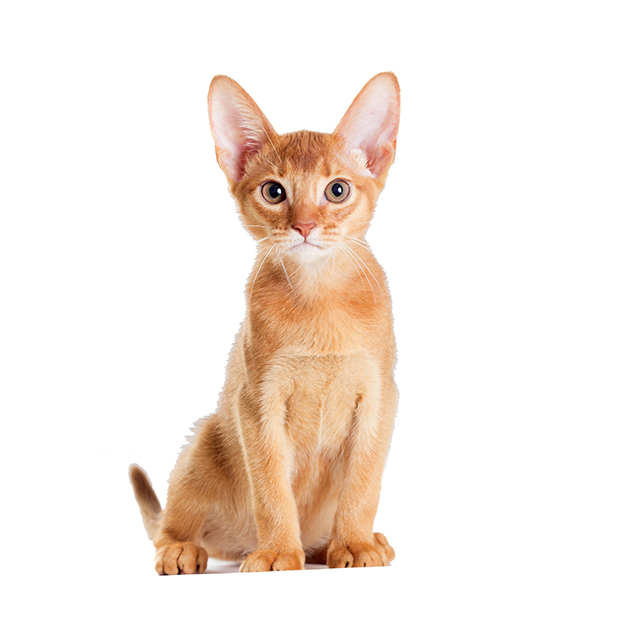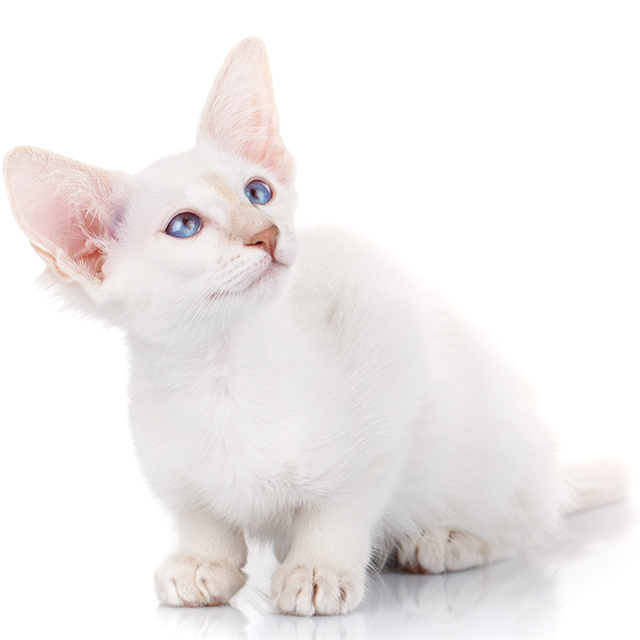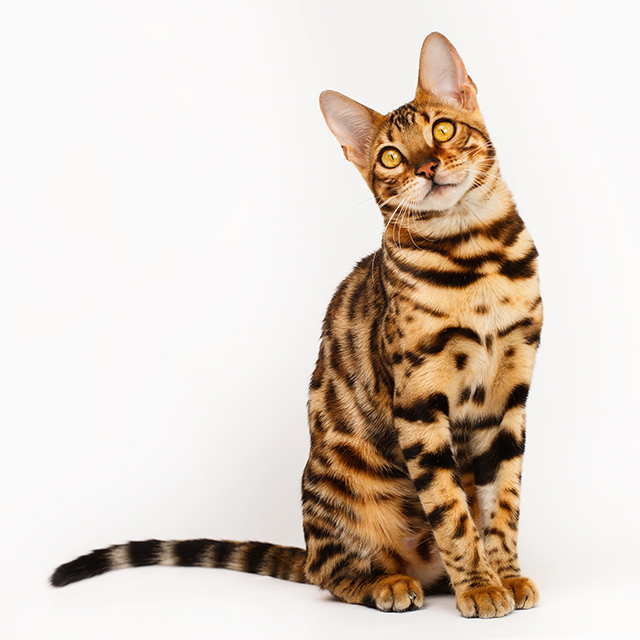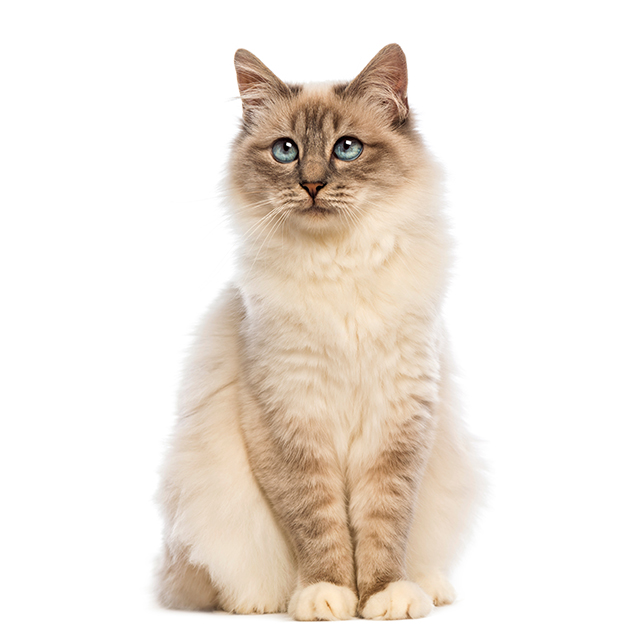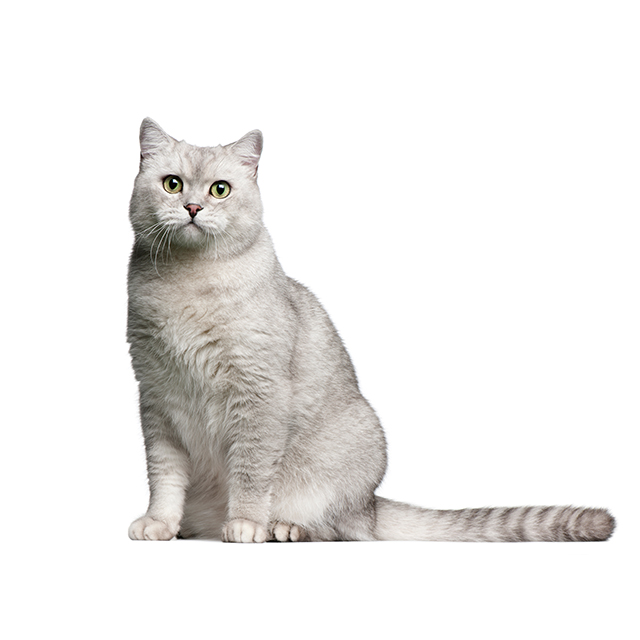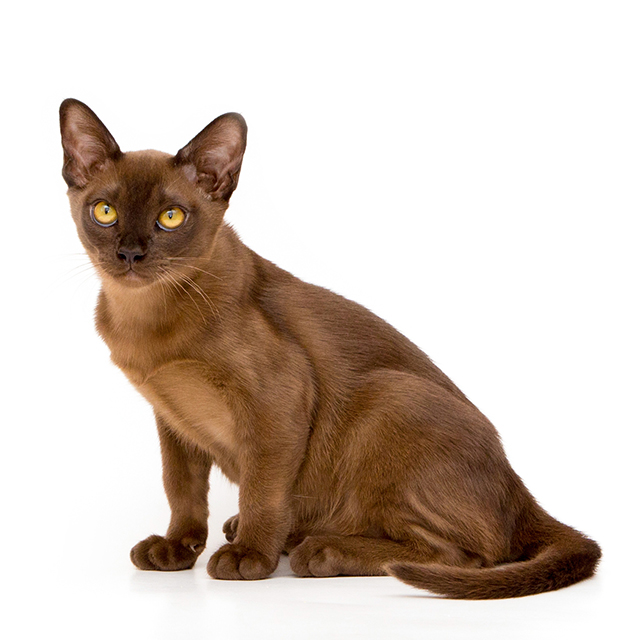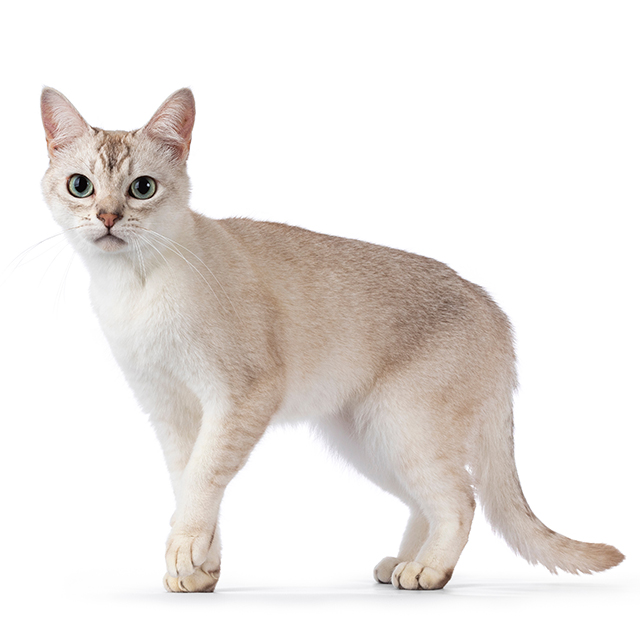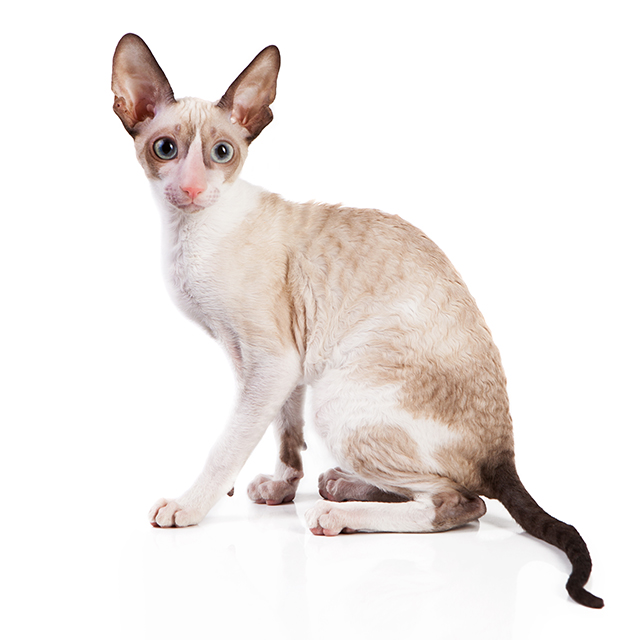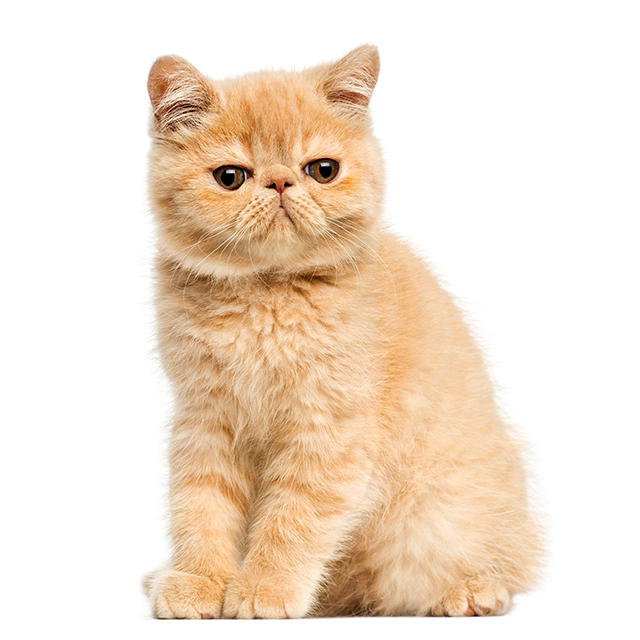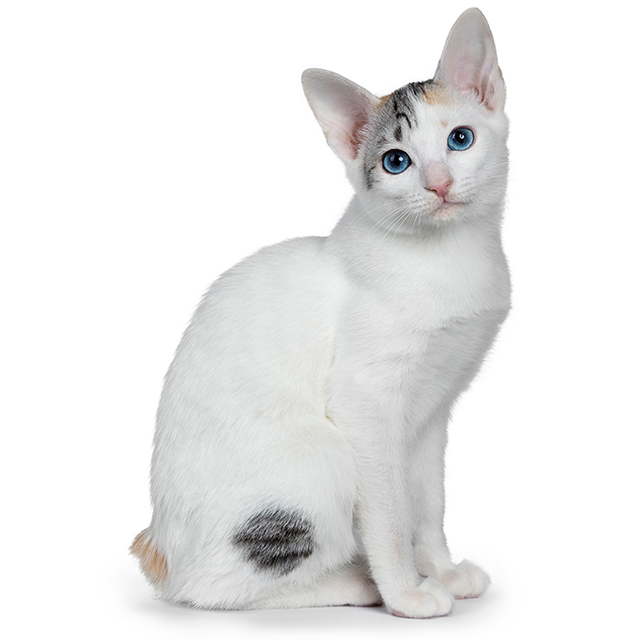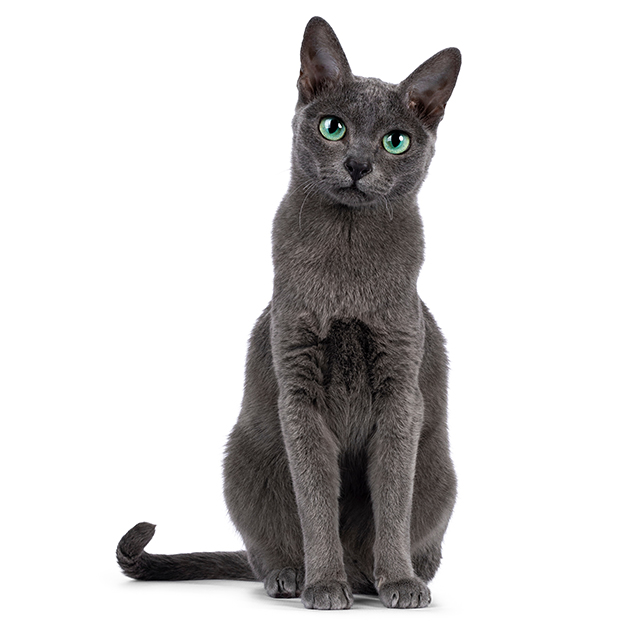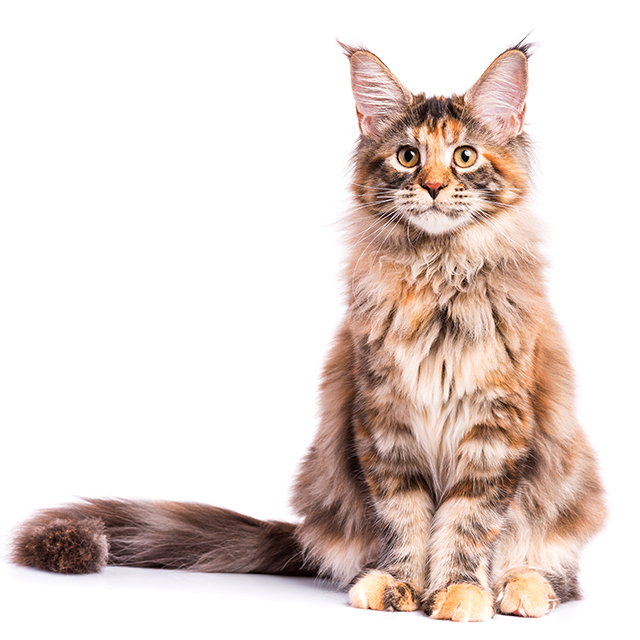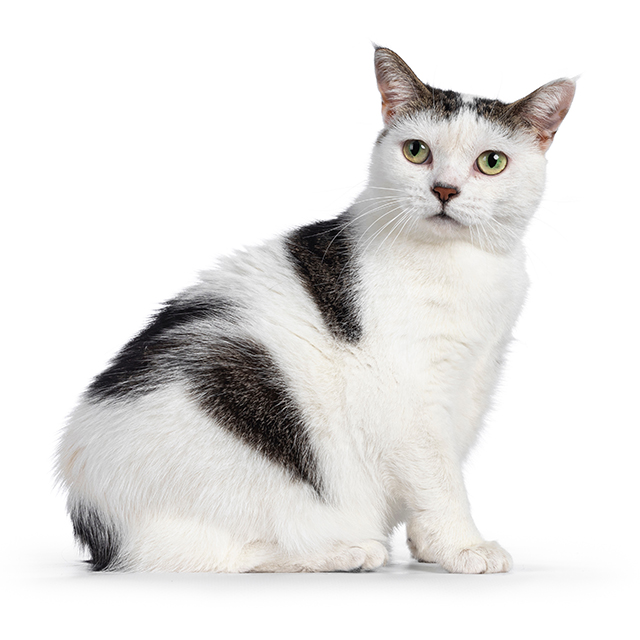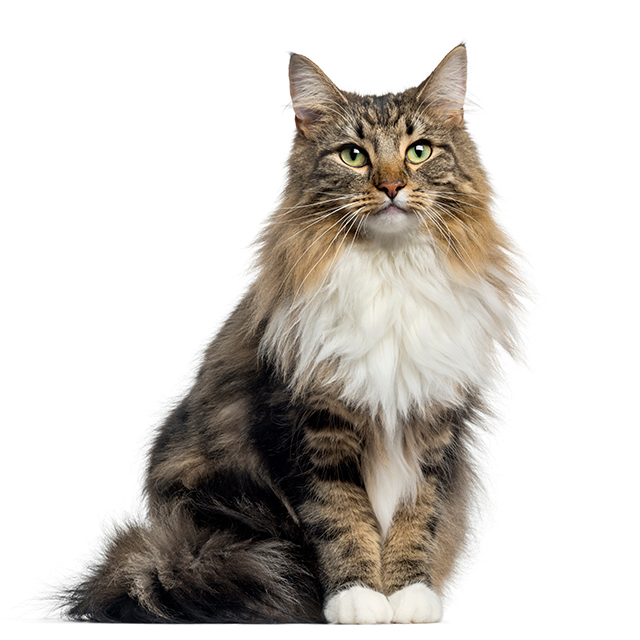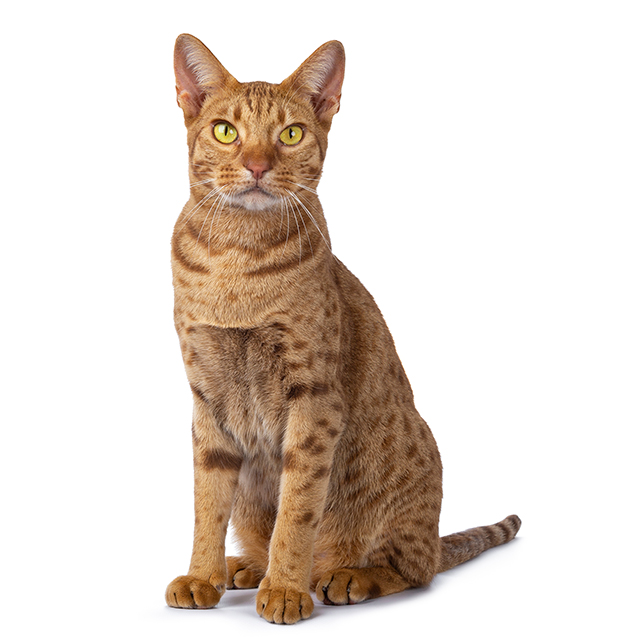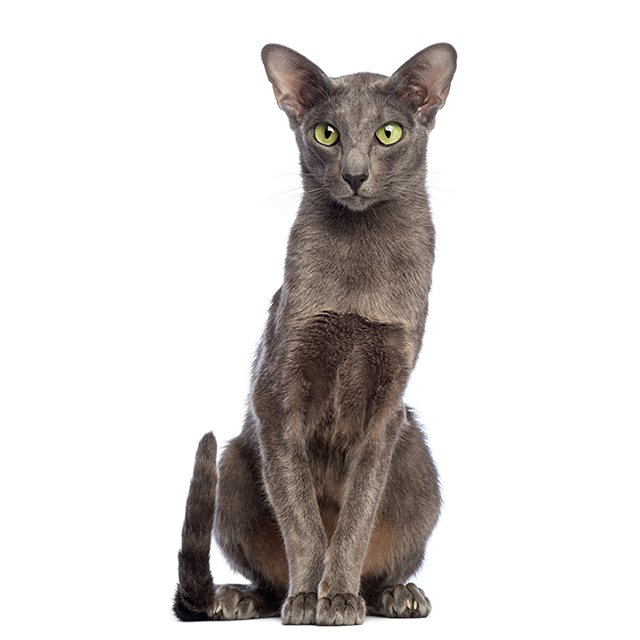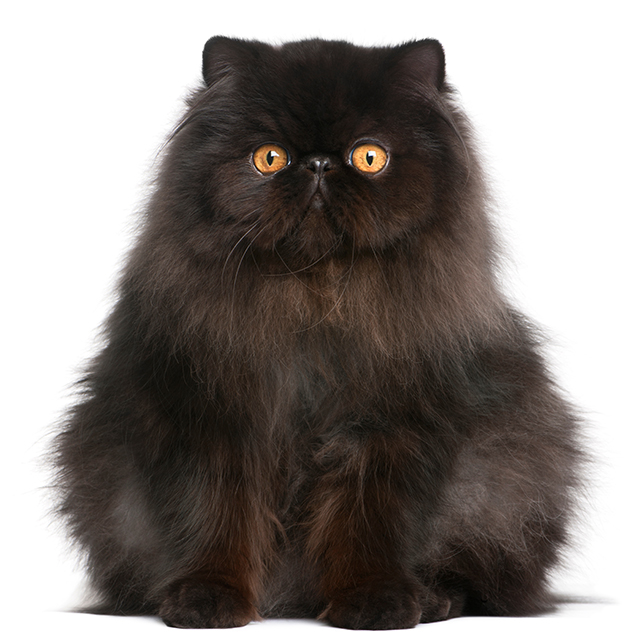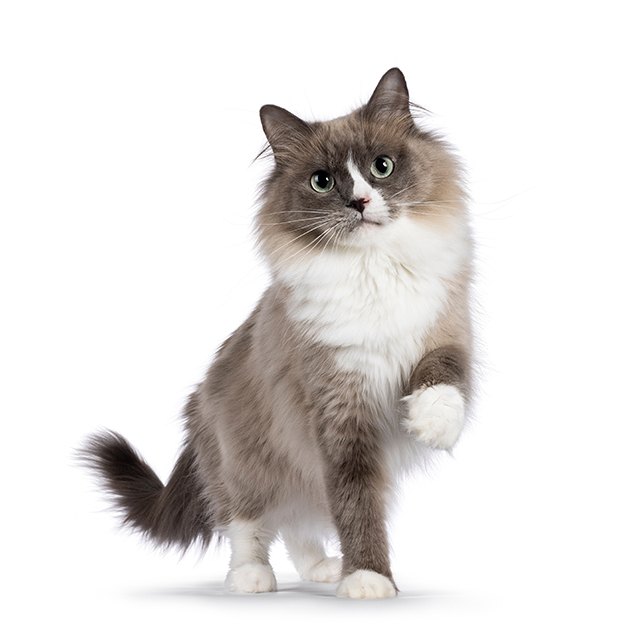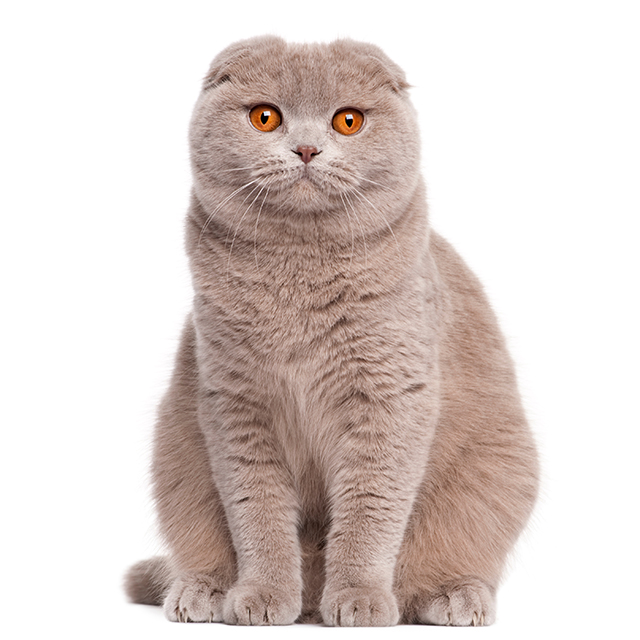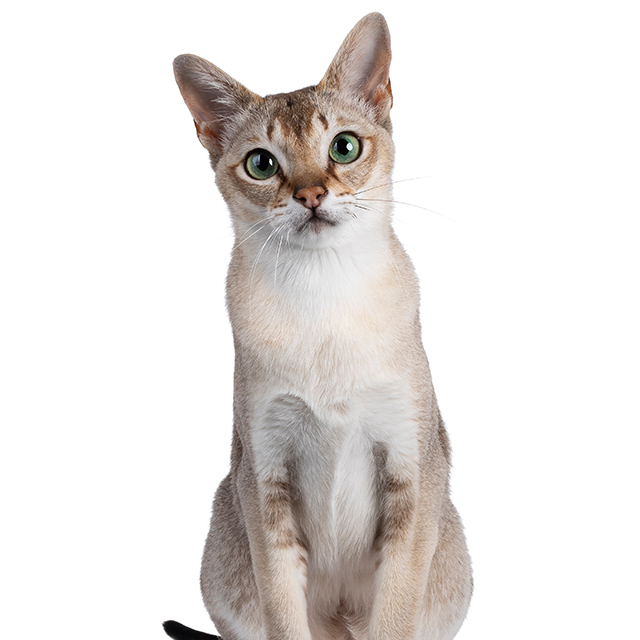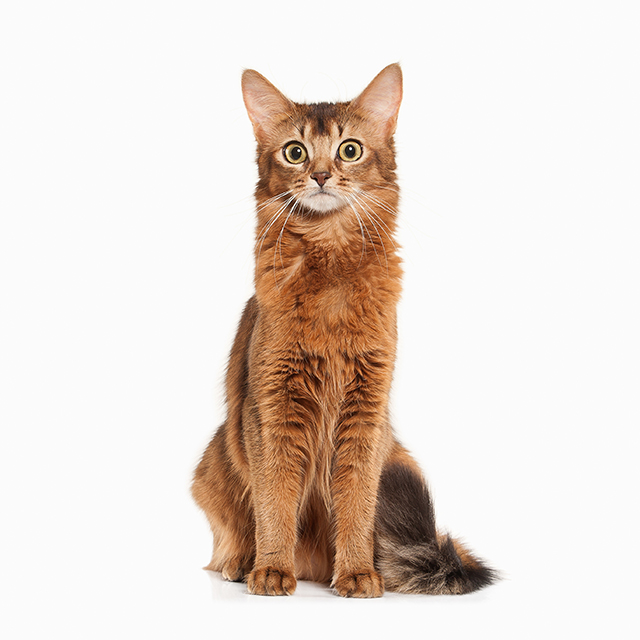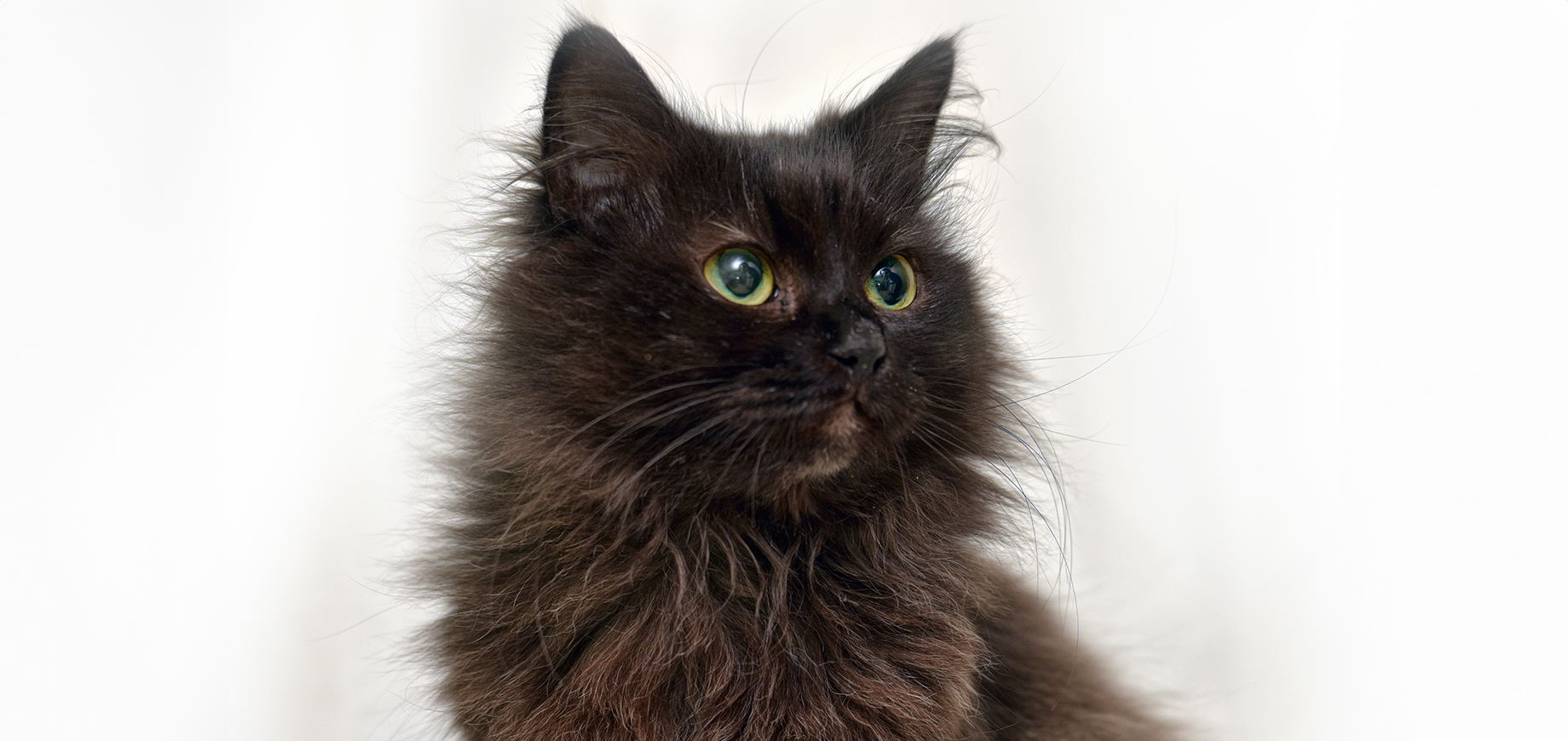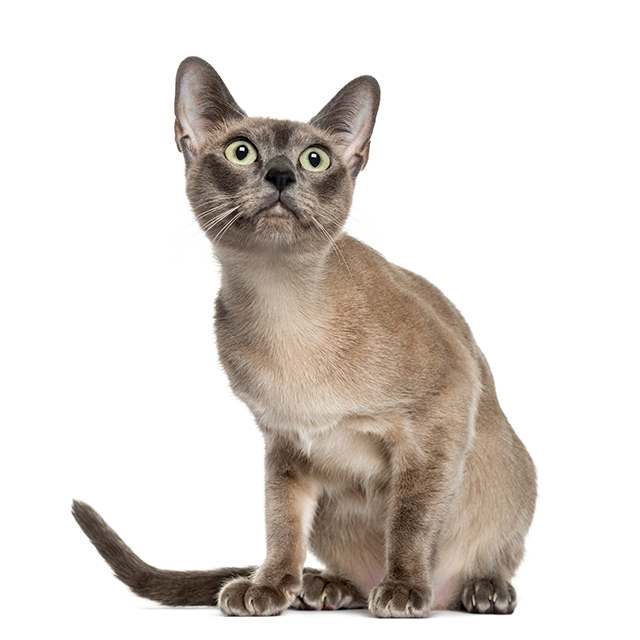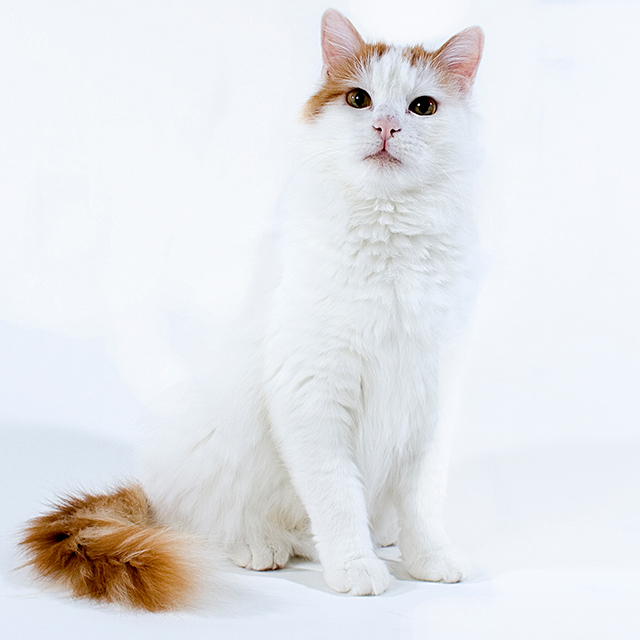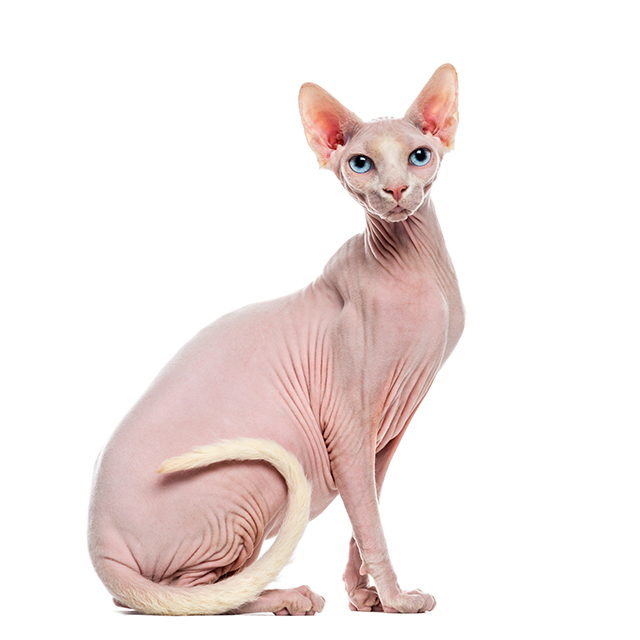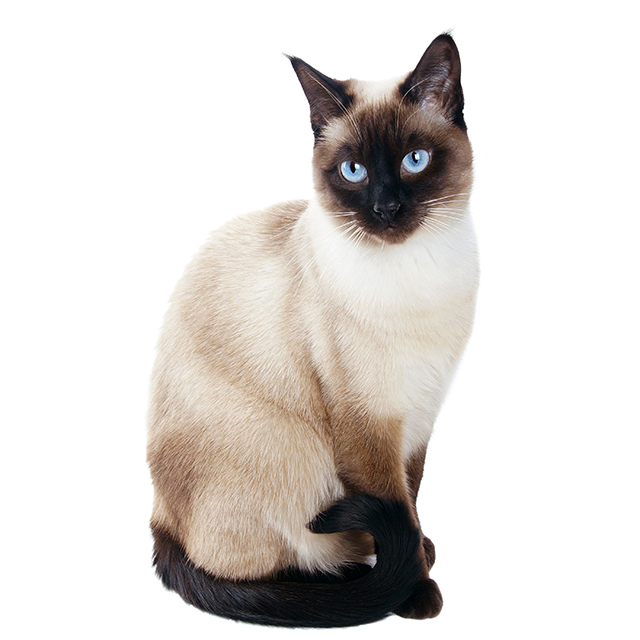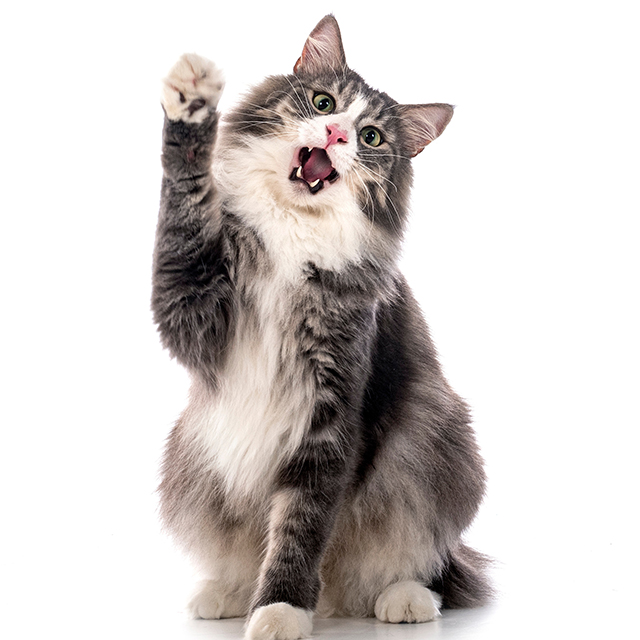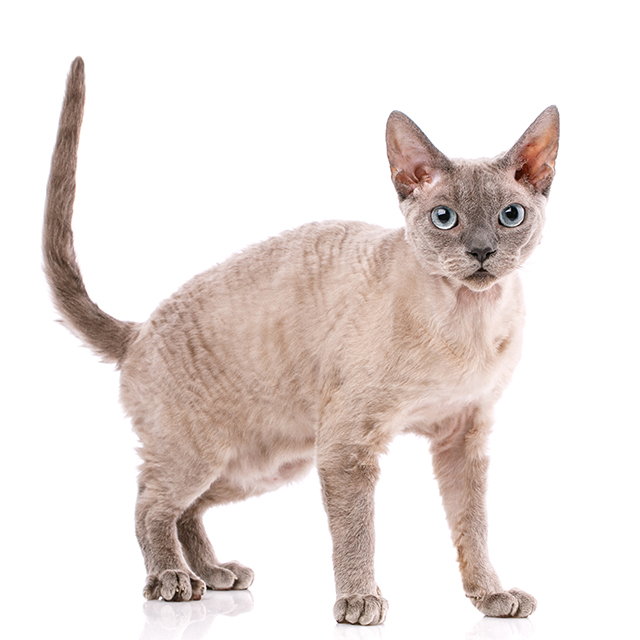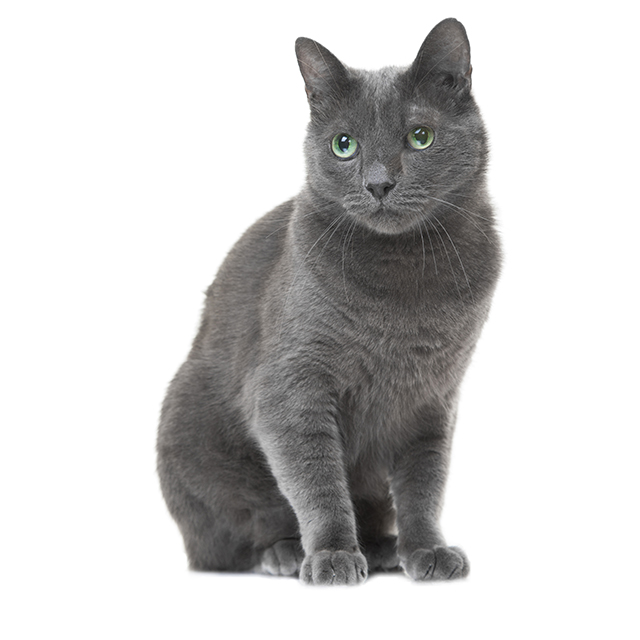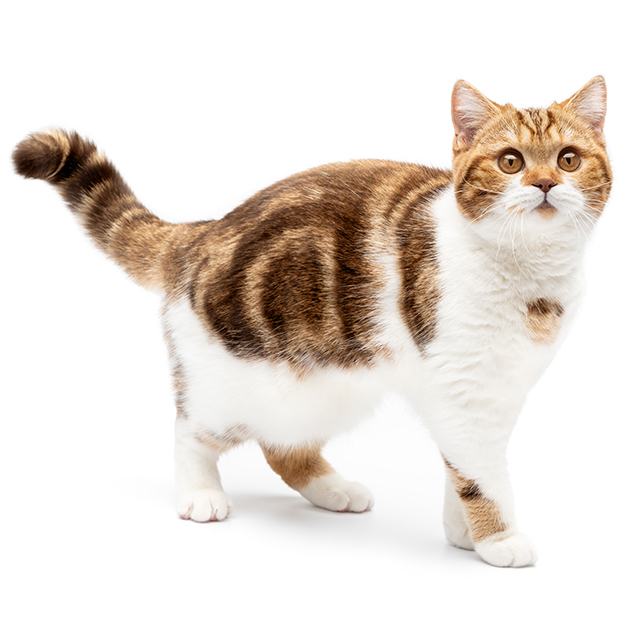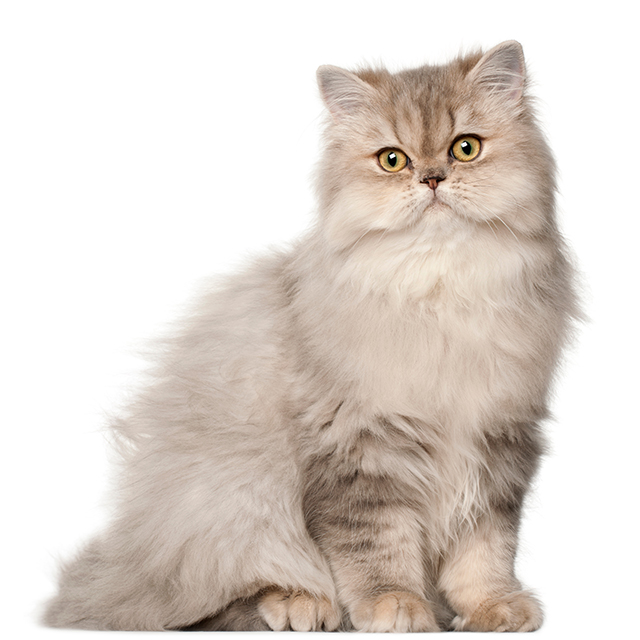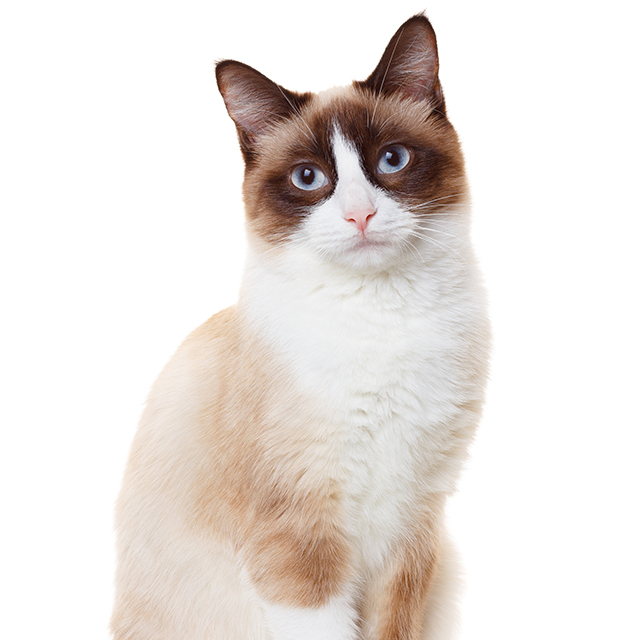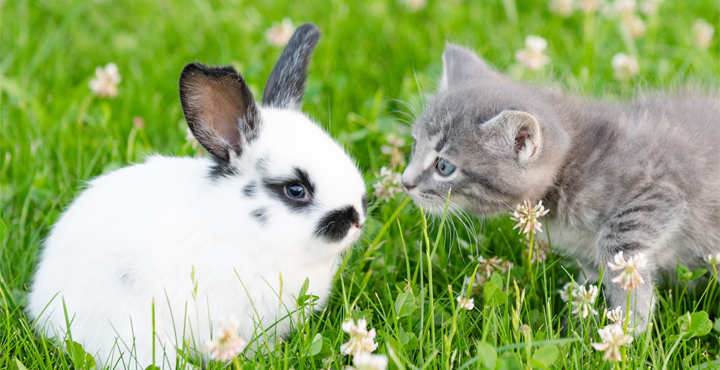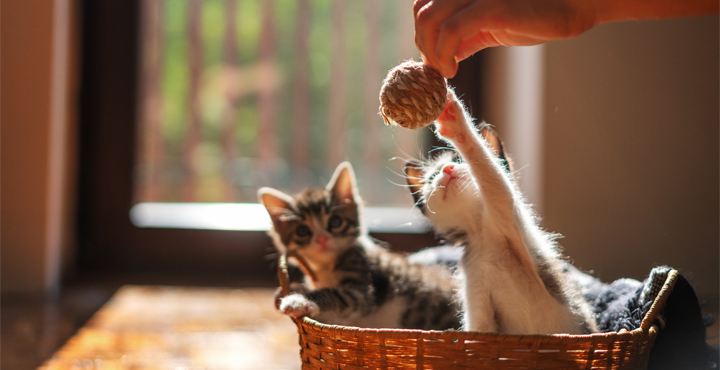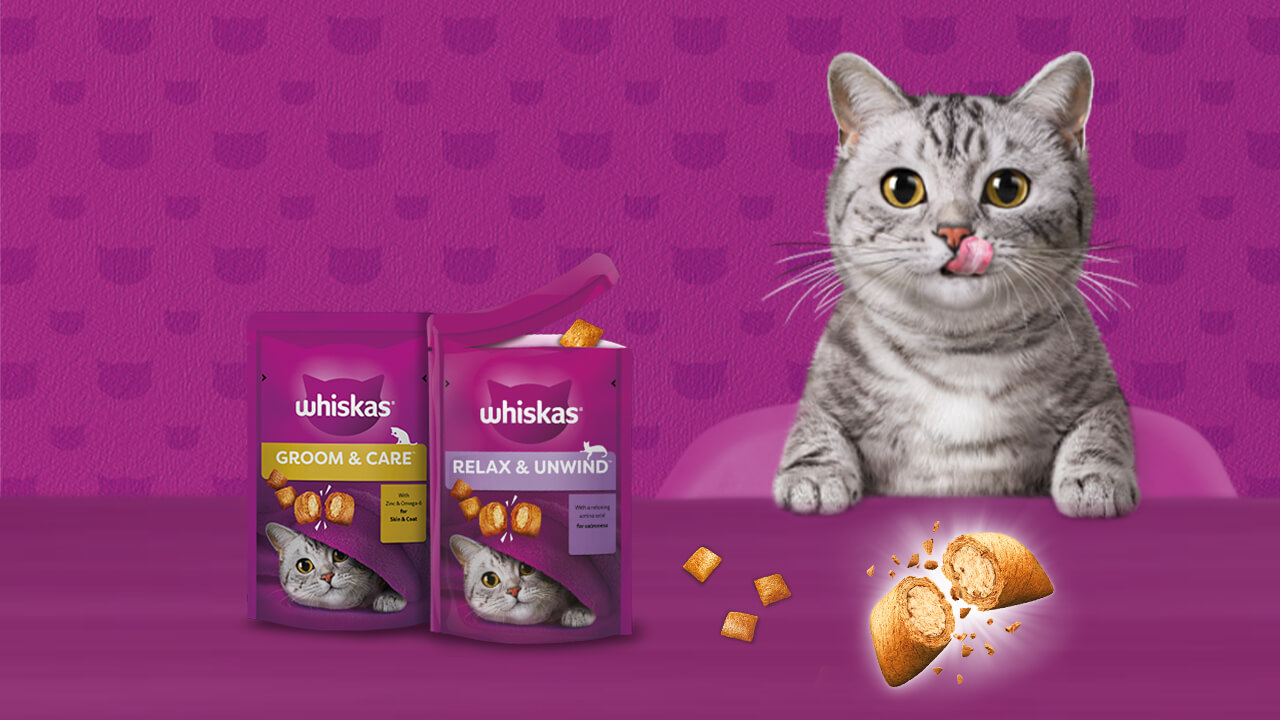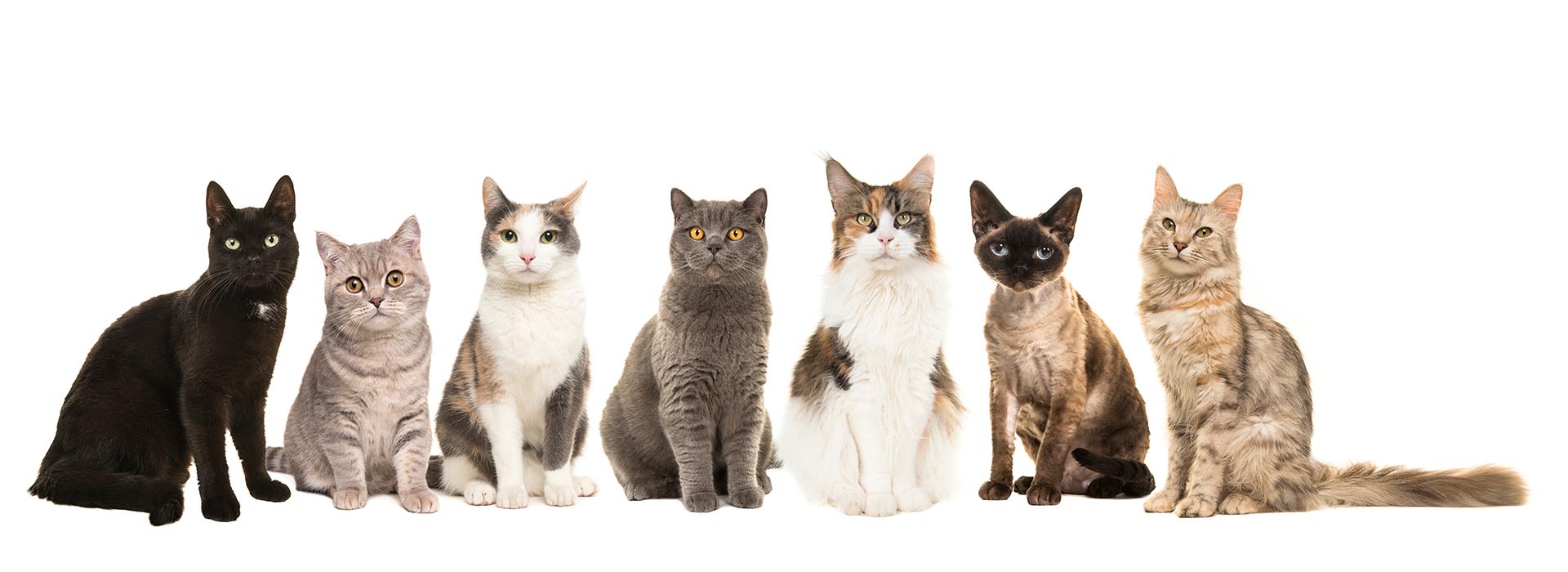
Cat Breed Selector
Cat Breeds A-Z
What is a cat breed?
A “cat breed” refers to a group of domestic cats that share specific physical and behavioural traits which have been passed down through generations of selective breeding. Cat breeds allows cats to be identified by certain characteristics, and provides a form of standardisation that is recognised by feline registries and cat enthusiasts across the world.
Cat breeds are significant, not only because of the diverse beauty of each breed, but also because their behaviour and health can be more predictable. This makes it easier for cat parents to choose a breed that suits their home and lifestyle, and be better prepared in case of any common health issues.
Understanding the diversity of cat breeds
There is a rich variety of cat breeds due the diversity of characteristics. Physically, there are differences between the cat’s coat type and colour, body size and shape, and eye colour. For example, Maine Coons have a long coat, while Sphynx cats are hairless. Cat personalities and behaviours also differ in terms of their social skills, energy levels and general nature. Siamese cats are known to be vocal and sociable, Abyssinian cats are energetic and playful and Scottish Folds are quiet and affectionate. The origin of certain cat breeds, as well as their adaptation to different environments, also contributes to the vast range of cat breeds.
Exploring mixed cat breeds
While pedigree cats are distinctive, mixed cat breeds are considered unique. Usually referred to as domestic short-haired or long-haired cats, these cats have been naturally or selectively bred from different cat breeds, hence their one-of-a-kind appearance. Mixed cat breeds boast a variety of features, including coat colours, patterns and lengths, as well as a broad spectrum of eye colours. Their build and body shape can also differ greatly.
The vast majority of cat breeds in UK households are domestic short or long-haired cats, which are a mix of different cat breeds. Some cat enthusiasts appreciate the natural genetic combination of different breeds, as opposed to belonging to a standardardised breed. These cat’s personalities also varies a lot, which means they may be more adaptable to different households and lifestyles.
There are many other advantages of adopting mixed cat breeds. For instance, they tend to have fewer genetic problems compared to pedigree cats, which means a mixed-breed cat’s lifespan could be longer. And of course, there’s the benefit of providing a loving home to a cat in need, whilst also relieving rescue shelters and supporting animal welfare.
Some combinations of mixed cat breeds are more popular than others. A mix between a Siamese cat and a domestic shorthair, for example, can lead to cats with beautiful blue eyes and point colouration.
Discovering the ideal cat breed for your needs
It’s crucial to choose the ideal cat breed for your needs, as the decision affects both you and your new feline friend. We provide some factors to consider below:
Cat’s Size
The size of your cat is important to consider in terms of your living environment. Some cat breeds are larger, like Maine Coons and Ragdolls, need more space to play, and therefore would be ideal for larger homes. However, smaller cat breeds may be suitable for smaller homes or even apartments.
Activity Levels
Each cat breed has different activity levels, and you’ll need to decide what you can manage. High-energy cats, like the Abyssinian breed, will be much more active and will need time from you for interactive play. However, some cat breeds are more laid-back, and while play is important for mental and physical stimulation, they may be less demanding of your time.
Grooming Needs
You’ll also need to consider how much time you have to groom your cat’s coat. Longer-haired cats such as Maine Coons will need grooming daily in order to keep their coat clean and minimise furballs. However, short-haired cats may not need grooming as often.
Temperament
Oftentimes, owners will want to match their cat’s personality for a harmonious relationship. Some cat breeds are more independent, like Russian Blues, while others are much more sociable such as Siamese cats. While all cats enjoy love and attention, your cat’s personality will determine whether they are comfortable being alone for short periods of time, or if they will follow you around the house for attention.
Compatibility
It’s also important to consider other members of your household before bringing a cat home. If you have other pets, you’ll want to make sure your chosen cat breed can adjust to living with other animals. Similarly, you’ll want to make sure they are gentle with your children, and vice versa.
It can be overwhelming to consider so many factors when choosing a cat breed. We’ve created a simple checklist so you can identify your preferences with ease, and find a breed that is best-suited.
Checklist:
- Living Space: Is your home small or large? Would it be better for a small or large cat?
- Personality: Would you like an energetic or relaxed cat? Can you meet their stimulation needs?
- Grooming: How much time do you have to care for your cat’s coat?
- Compatibility: How will your cat adapt to living with children or other pets and vice versa?
Does a cat's breed influence their personality
The breed absolutely influences a cat’s personality, which is why selective breeding is not only about a cat’s physical attributes, but also their behavioural traits as well. For example, Siamese cats are known for their vocal, social and affectionate nature, while British Shorthairs are considered to be calm and content without needing constant attention.
That’s why it’s so important to consider a cat’s personality when adopting a specific breed. It can give you a good idea of what behaviours to expect and allow you to prepare your home environment accordingly to meet their needs. Remember that even within the same cat breed, there’ll be slight variations of personalities - you can follow our guide to understand your cat’s behaviour better.
Choosing a feline companion: Adopting or Buying?
The first decision when you’re considering bringing a feline friend home is whether you should adopt a cat from a shelter or buy a cat from a breeder. Ultimately, the decision is yours, depending on your personal beliefs. There are many key factors that play a role in making this decision and we explore these below.
You may choose to adopt to support animal welfare, relieve cat shelters and provide a safe home for a cat in need. Adoption fees may also be more cost-effective for you than costs of purchasing a cat, as well as easier since many adoption shelter alreadys have their cats health checked, neutered/spayed and treated for fleas and worms.
However, If you’re wanting a specific cat breed due to their appearance, personality or other qualities, you may prefer to purchase from a breeder. Remember to be vigilant in your research for a reputable breeder, ensuring there are no unethical breeding practices that you could be inadvertently supporting.
Why you should adopt & give shelter cats a home
By adopting cats from a shelter or rescue organisation, you are helping a cat in need by providing it with a loving and deserving home. This can also support animal welfare, as well as alleviate the strain on overpopulated cat shelters. Not only are adoption fees usually less than purchasing a pedigree cat, but the funds also contribute to the medical care, food and shelter for other animals in need. Furthermore, shelters often ensure that cats are health checked, vaccinated and spayed or neutered which can be more cost-effective than paying for these veterinary services separately. Some cats are even assessed for their behaviours, so you are aware of any issues beforehand.
Unfortunately, there are many misconceptions about adopting which may be affecting your decision. It’s important to remember that shelter cats do not necessarily have more behavioural or health problems, and could be in the shelter due to being lost or unable to be cared for by their previous owners. Another common concern is that you can’t find a pedigree cat or a kitten at the shelter, which is simply not true. While the majority of cats in shelters are mixed-breeds, there are often pedigree cats and kittens of all breeds available for adoption,
Ultimately, adopting a cat can enrich your life, as well as your cat’s lifespan. Knowing that you’ve rescued your cat can be the start of a beautiful companionship between you and your feline friend.
Purchasing a cat: Finding a breeder
Some people may choose to buy a cat from a breeder if they’re looking for a specific breed due to its physical and behavioural characteristics, such as a cat’s coat or personality, which have been passed down from previous generations. For example, a growing family may be inclined towards a Ragdoll cat since they are known to be gentle with children. Reputable breeders usually have their cat’s health checked to identify any genetic concerns, and can provide specific advice on how to care for your new cat in terms of their dietary and grooming requirements as well.
However, there are also potential drawbacks to consider before purchasing. It’s critical to research your breeder to make sure they are ethical in their breeding practices. You should have the opportunity to visit the cat before committing to purchase, at which time you can observe their environment to make sure its clean and not overcrowded. The kitten’s mother should also be present. Unfortunately, unethical breeding practices exist, and it’s important as a buyer not to contribute to this problem.
Essential considerations for new cat parents
While it’s exciting to think about getting a new cat, it’s a decision that shouldn’t be taken lightly. Since a cat’s lifespan can be up to 20 years, being a cat parent is a long-term commitment, which is why it’s important to consider crucial factors to ensure you’re ready for this level of responsibility. Besides providing food and water, cats need veterinary care, grooming, and mental and physical stimulation to protect their overall well-being. Not to mention, plenty of love and affection.
You should consider your lifestyle to see if cat ownership is for you. This includes factor such as if you work long hours or have a sociable life, in which case you may want a more independent cat breed like the British Shorthair. As discussed, your living arrangements also play a crucial role, as active breeds like the Abyssinian may need more playtime and space, while less energetic breeds such as Birman cats may be better for a smaller space. It’s important that your personality matches that of your chosen cat breed, to form a harmonious relationship.
Preparing your home for a new feline friend
Once you’ve made the decision to welcome a cat into your life, you’ll need to prepare for the arrival of a new kitten. Here are some ways of kitten-proofing your home to ensure a safe and comfortable environment.
- Restrict access to toxic items. This includes any medication, cleaning products and even certain houseplants which can be harmful or even fatal to cats.
- Create a safe space. It’s important your cat has a cosy space to hide if they feel overwhelmed, as well as to rest. Here are some other tips to settle a cat in their new home.
- Provide fresh water and proper nutrition. Make sure to provide a complete and balanced diet that’s appropriate for your cat’s age, size, health and dietary requirements.
- Set up an area for litter tray. Keep your cat’s litter area separate to their food and sleeping space, and make sure it’s quiet so they feel comfortable to use it.
- Purchase toys and scratch posts. Your cat needs to scratch as part of their natural behaviour. They will also enjoy a variety of toys and puzzle feeders for stimulation.
- Plan for their healthcare. Once your cat is home, make an appointment with the veterinarian for a check-up and for advice on vaccinations, treatments, and neutering or spaying.
What is the No 1 cat breed?
While there are many adored cat breeds, the GCCF organisation has determined that the British Shorthair is the most popular pedigree cat breed in the UK. This cat’s coat is beautiful, with different colours available, and their calm and gentle demeanor can make them a great addition to a loving home.


